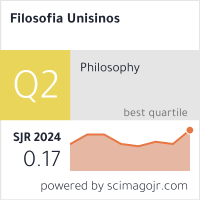Letting language be: reflections on enactive method
DOI:
https://doi.org/10.4013/fsu.2021.221.14Resumen
Prompted by our commentators, we take this response as an opportunity to clarify the premises, attitudes, and methods of our enactive approach to human languaging. We high-light the need to recognize that any investigation, particularly one into language, is always a concretely situated and self-grounding activity; our attitude as researchers is one of knowing as engagement with our subject matter. Our task, formulating the missing categories that can bridge embodied cognitive science with language research, requires avoiding premature abstractions and clarifying the multiple circularities at play. Our chosen method is dialectical, which has prompted several interesting observations that we respond to, particularly with respect to what this method means for enactive epistemology and ontology. We also clarify the important question of how best to conceive of the variety of social skills we progressively identify with our method and are at play in human languaging. Are these skills socially constituted or just socially learned? The difference, again, leads to a clarification that acts, skills, actors, and interactions are to be conceived as co-emerging categories. We illustrate some of these points with a discussion of an example of aspects of the model at play in a study of gift giving in China.
Keywords: Enactive epistemology, Enactive ontology, Dialectics, languaging, Shared know-how.
Descargas
Métricas
Descargas
Publicado
Cómo citar
Número
Sección
Licencia
Concedo a revista Filosofia Unisinos – Unisinos Journal of Philosophy o direito de primeira publicação da versão revisada do meu artigo, licenciado sob a Licença Creative Commons Attribution 4.0 (que permite o compartilhamento do trabalho com reconhecimento da autoria e publicação inicial nesta revista).
Afirmo ainda que meu artigo não está sendo submetido a outra publicação e não foi publicado na íntegra em outro periódico e assumo total responsabilidade por sua originalidade, podendo incidir sobre mim eventuais encargos decorrentes de reivindicação, por parte de terceiros, em relação à autoria do mesmo.











